During his presidential campaign in 2008, Obama
made a promise to do something to improve the horrible state of affairs
in health care financing that plagued the country. Health costs,
compared to similar programs in other Western countries, were
exorbitant, and getting worse for the average American with each passing
year. Many working-class Americans could afford no health insurance
coverage at all (however welfare recipients typically were better off
in this matter of health coverage). Policies were costly to small
businesses, and many of these businesses had to drop such health
coverage in order to stay in operation.
The assumption of the Democrats was of
course that this problem was essentially a political problem, and thus
required a political solution, that is, laws enacted by the federal
government. Republicans strongly opposed this assumption, but offered
no serious alternative solution to what had become a critical problem
for Americans. Without expensive medical insurance, even a short stay
in a hospital could be financially ruinous for the average American.
Even a visit to the doctor for a 15-minute consultation could cost the
equivalent of a day's wages for many hard-working Americans. And if
tests were to be run (which were ordered as much to cover the question
of the doctor's legal liabilities as to look for a reasonable cause to
a medical problem, and thus were exhaustive in both number and expense)
a medical problem of a rather typical size could become monumentally
expensive.
Mostly the huge costs of medical care in
America (when compared to other Western nations) resulted from the
culture of greed that afflicted the nation. That really was a question
that could not be addressed by legislation, but only by strong moral
leadership. But such moral initiative on the part of the nation's
leaders was never forthcoming. Doctors were unquestioned in their
privilege of living way above the standards of the average American
(only the old timers in America could remember when back in the 1950s
doctors still lived in the community side by side with their neighbors,
whom they treated when sick in bed with house calls, rather than making
them drag themselves to their waiting rooms – or if they had no
appointments to drag themselves to the emergency rooms in hospitals
where they could sit for hours waiting for medical attention). Part of
the problem was a shortage of doctors, caused largely by the blocking
by the doctors' union (American Medical Association or AMA) of the
startup of new medical schools for students willing and eager to enter
the profession, which is why medical schools from Switzerland in Europe
to the tiny island of Grenada in the Caribbean were filled with capable
American medical students unable to attain the highly prestigious
privilege of entry into a gold-trimmed American medical school, and why
by the time of Obama many of America's doctors were coming from India
and Pakistan to make up the shortage created by this elitist strategy
of the AMA. Then there were the lawyers who preyed on the doctors and
hospitals, looking for patients willing to sue these holders of great
wealth for mistakes, because gods do not make mistakes. Garage
mechanics may do so, bankers may do so, teachers may do so, but not
doctors. And then there was the matter of the hospitals, huge money
mills in which a single night's stay frequently cost a person as much
as a month's salary. And finally, most of all there were the medical
insurance companies who cooperated with the doctors and lawyers to
remove the medical system from all constructive market forces and pull
medical pricing into a political labyrinth that few could figure out
how it worked, except that everyone knew that it was financially a
system out of control.
In short, uncontrolled greed was largely
responsible for the situation (despite the badmouthing of medical care
in other Western countries, the fact is that overall the performance of
those systems vastly exceeds the American medical system in providing
affordable medical care to the average person). But who knew how to
take an axe to this greedy system and bring it down to an affordable
place in the life of the nation? The Republicans had no answers. And
the Democrats proposed to make the system even more Byzantine by adding
the government and its love of regulating everything into the mix of
insurance companies, law firms, hospital corporations, the AMA and
their community of wealthy and (often foreign-accented) doctors, a
dazzling cast of political actors who had so far successfully lobbied
to kill any action to bring the mess under reasonable control.
In any case, in July of 2009, Obama's
much-expected health-care proposal was finally published as a 1017-page
document. The massive amount of data and information included in the
law made it incomprehensible not only to average Americans but to even
the Congressmen responsible for passing this bill into law. Both
Liberals and Conservatives gathered forces to either support or oppose
the proposed law in principle rather than detail, a law whose total
cost to the American taxpayer and ultimate impact on the health
industry was indeed highly debatable with quite different facts and
figures being put forward depending on one's position on the bill. When
the bill was first introduced, the Congressional Budget Office
estimated that the program would cost $1 trillion over a ten-year
period. At a time of skyrocketing federal deficits, a $1 trillion
add-on to the deficit was hotly opposed by the Republicans. Democrats
countered that it was going to cost the average American far more than
that in rising health care costs if the legislation were not passed.
But who really knew for sure? The debate grew so rancorous and
confusing that finally the Democrats simply asked the Americans to
"trust us, you will eventually see how good this legislation is and
later come to thank us."
Actually, that attitude eventually
backfired with the American voter, and instead helped fuel a large fire
of public distrust of government that was growing rapidly among the
American voters.
In any case, Obama wanted the bill passed
by the end of the year (2009). With the help of the Democrat Party
leader in the House (a powerful Nancy Pelosi), votes began to be lined
up. So important to Obama was the passage of this legislation (to have
failed would have weakened considerably what he understood as the
proper image of Presidential leadership) that in September he spoke
directly to Congress on the matter.
But the end of the year came and only the
Senate had voted approval of the bill (60-40), though it was vastly
changed from the original submitted by Obama. It lacked the "public
option," a government health insurance program which was designed to be
cheaper than the private health insurance plans and which Obama said
would thus force down the price of all insurance policies. The
Republicans countered that the public option would drive private health
insurance companies out of business, leaving the country with only a
government-managed health care program: medical socialism.
In the House the debate continued into
the early months of 2010. Public opinion polls were registering
deep concerns by the American voter about the whole issue. 2010 was a
congressional election year and the long debate, and lowering of
popular American support for the legislation, was making the
legislators nervous. In the end the House approved in a very close vote
of 219 to 212 the Senate version, with no Republicans voting in favor
despite the large number of Republican amendments that had been added
to the bill. It was signed into law by the president two days later
(March 23, 2010) as the Patient Protection and Affordable Care Act,
known simply as the Affordable Care Act (ACA), though even more widely
as "Obamacare."
But the Republicans vowed that if voter
anger over this government program brought a Republican majority to
Congress in November, the Republicans would repeal this
"unconstitutional" act. Of course, repeal was an empty threat unless
they could gain at least two-thirds of the seats in both houses of
Congress in order to get such legislation past an Obama veto. Failing
to fund the program however was not, for a simple Republican majority
in just a single house of Congress (looking increasingly likely to be
the House of Representatives as the election approached in late 2010)
could stop all spending in support of the law. But still, in the end,
Obama had his piece of legislation.
But it cost him and the Democrats a lot
of support with the voting public. The Republicans had an issue to run
with, and chip away deeply at the position of the Democratic Party in
Congress.
The Democrats lost six seats to the
Republicans in the Senate. But still holding 51 seats to the
Republicans' now 47 seats (and with Independent Senators tending to
vote with the Democrats), the Democrats managed to hold their majority
position there. But the House election was a rout, with the Republicans
picking up 63 seats, the largest swing in House political fortunes
since 1938. With a 242 Republican seating to now only a 193 Democratic
seating in the House, the House of Representatives found itself under
strong Republican control.
But Obamacare would manage its way
forward, despite a general dislike of the program (more among the older
population; the younger population tended to be somewhat favorable, and
minorities were strongly in favor of the program). It would take a
number of years (roughly five years later) before polls showed that
Americans as a whole were finally more supportive than opposed to the
program.

 Obama's pet project: The national
healthcare program
Obama's pet project: The national
healthcare program  Obama's Supreme Court appointments
Obama's Supreme Court appointments  Making the
opposition to homosexuality a "hate
crime"
Making the
opposition to homosexuality a "hate
crime" The move to end "Don't ask, don't tell" in the
military
The move to end "Don't ask, don't tell" in the
military The ending of limits to contributions to political campaigns
The ending of limits to contributions to political campaigns The
question of marriage
The
question of marriage





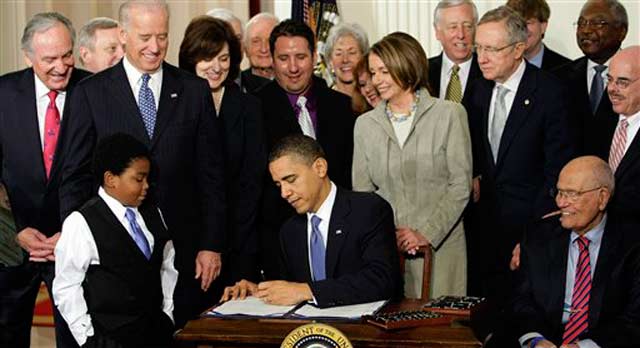
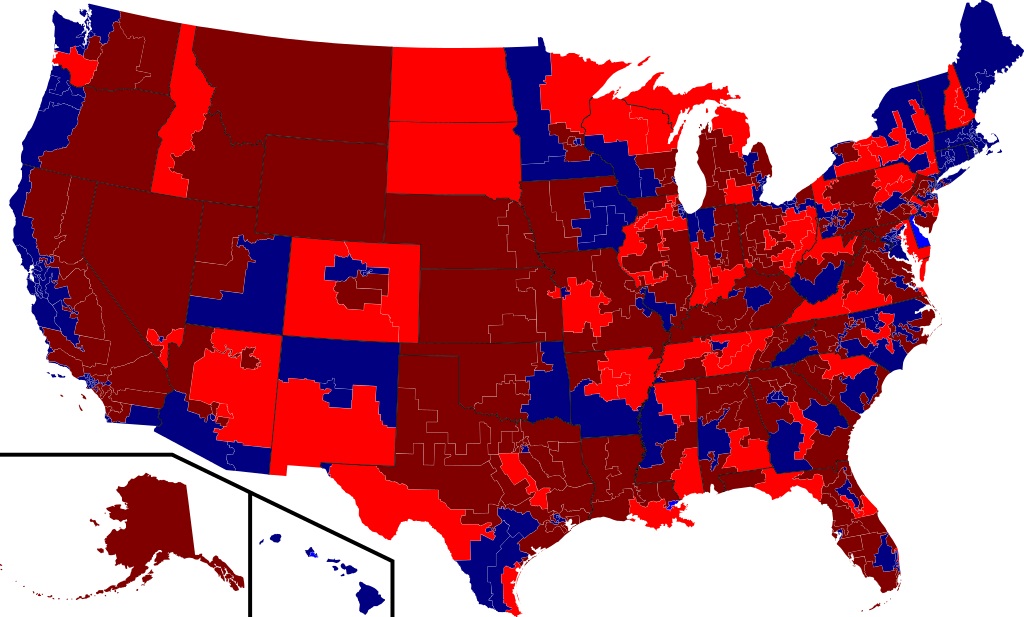


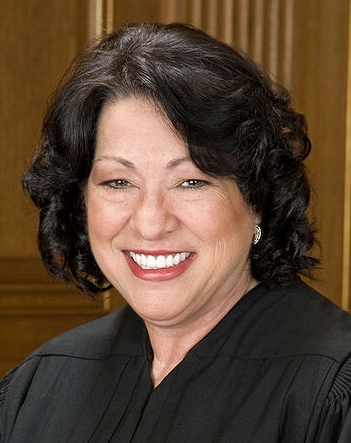 In May (2009) Obama nominated Sonia Sotomayor to
replace retiring Supreme Court justice David Souter. Her appointment
was confirmed by the Senate in August, in a 68-31 vote, along a largely
Democrat-Republican party dividing line.
In May (2009) Obama nominated Sonia Sotomayor to
replace retiring Supreme Court justice David Souter. Her appointment
was confirmed by the Senate in August, in a 68-31 vote, along a largely
Democrat-Republican party dividing line.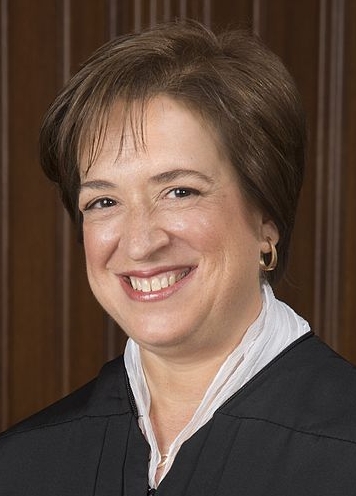
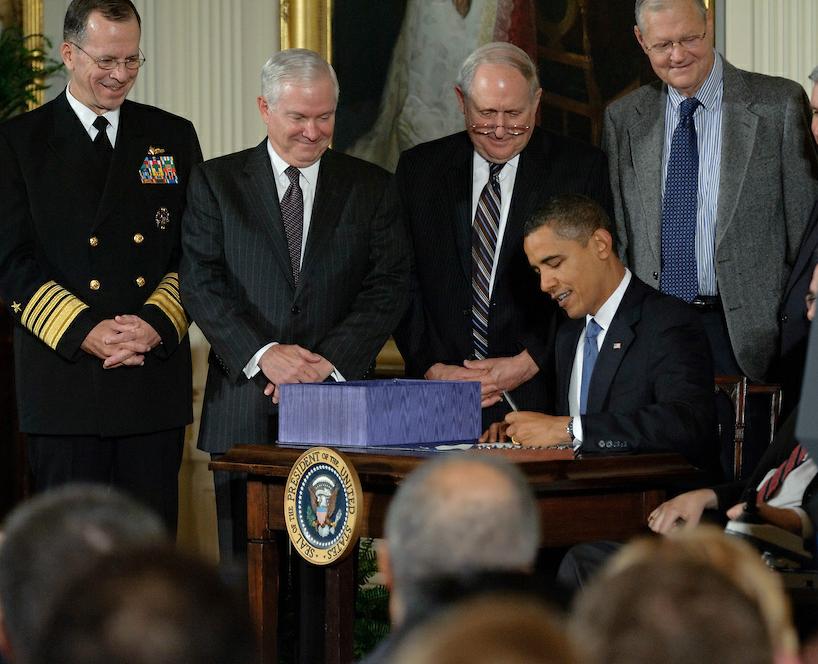

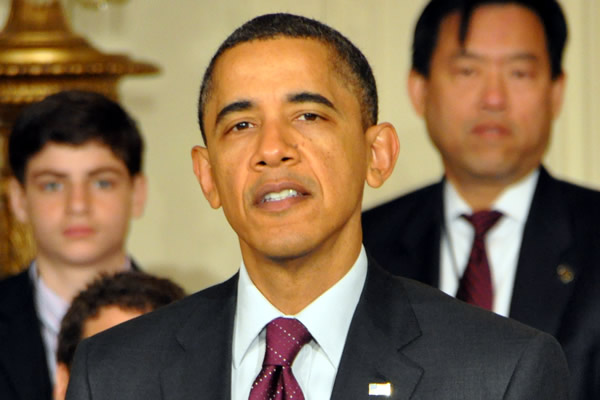
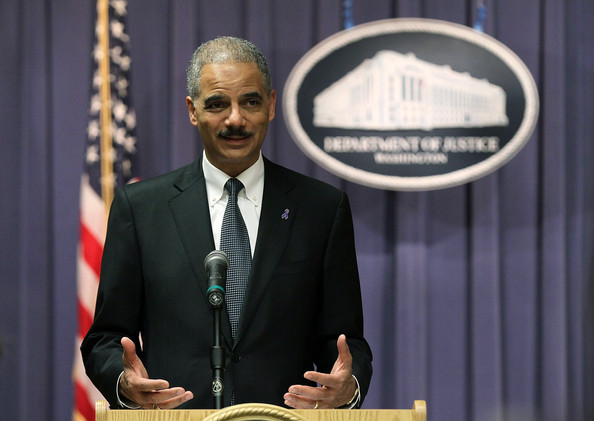
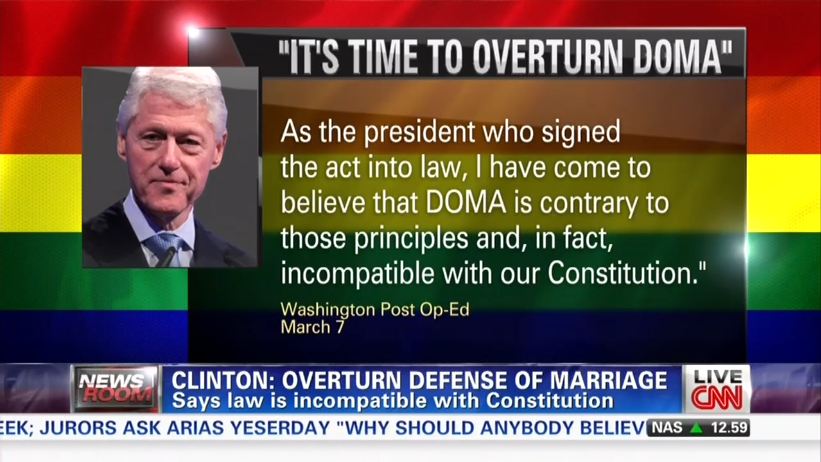
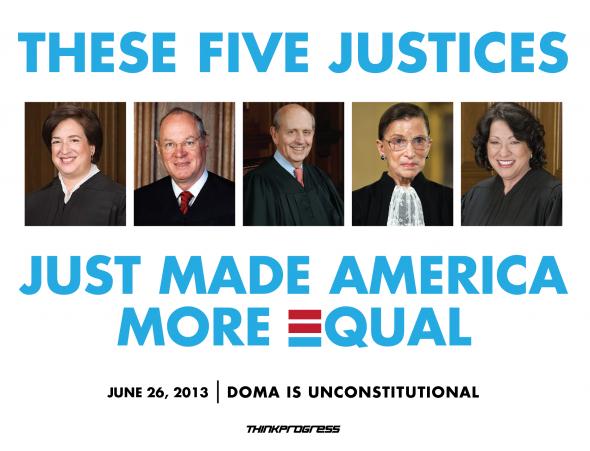

 Miles
H. Hodges
Miles
H. Hodges